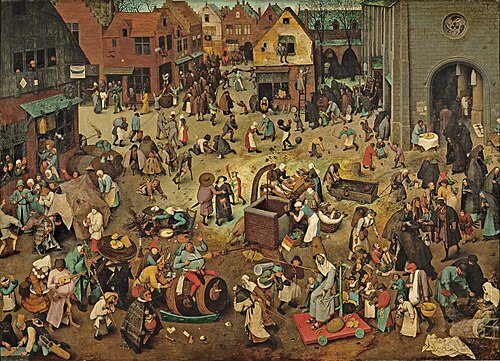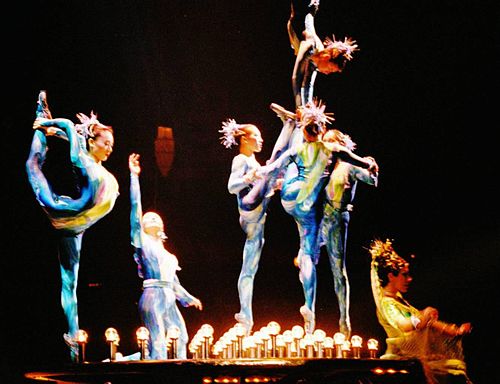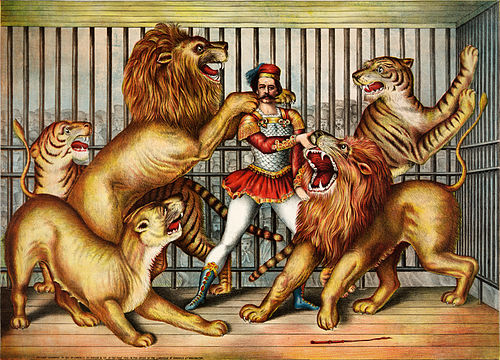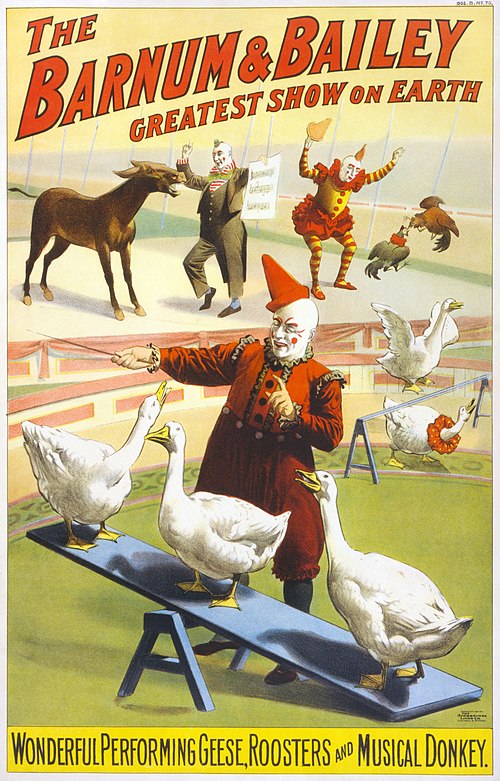Carnivalnoun
Any of a number of festivals held just before the beginning of Lent.
Carnivalnoun
A festive occasion marked by parades and sometimes special foods and other entertainment.
Carnivalnoun
(US) A traveling amusement park, called a funfair in British English.
Carnivalnoun
A festival celebrated with merriment and revelry in Roman Gatholic countries during the week before Lent, esp. at Rome and Naples, during a few days (three to ten) before Lent, ending with Shrove Tuesday.
Carnivalnoun
Any merrymaking, feasting, or masquerading, especially when overstepping the bounds of decorum; a time of riotous excess.
Carnivalnoun
a festival marked by merrymaking and processions
Carnivalnoun
a frenetic disorganized (and often comic) disturbance suggestive of a circus or carnival;
Carnivalnoun
a traveling show; having sideshows and rides and games of skill etc.
Carnivalnoun
an annual festival, typically during the week before Lent in Roman Catholic countries, involving processions, music, dancing, and the use of masquerade
Carnivalnoun
a public event or celebration, typically held outdoors and involving stalls, entertainment, and processions
Carnivalnoun
an exciting or riotous mixture of elements
Carnivalnoun
a travelling funfair or circus
Carnival
Carnival is a Western Christian festive season that occurs before the liturgical season of Lent. The main events typically occur during February or early March, during the period historically known as Shrovetide (or Pre-Lent).
Circusnoun
A traveling company of performers that may include acrobats, clowns, trained animals, and other novelty acts, that gives shows usually in a circular tent.
Circusnoun
A round open space in a town or city where multiple streets meet.
Circusnoun
(figurative) A spectacle; a noisy fuss; a chaotic and/or crowded place.
Circusnoun
(historical) In the ancient Roman Empire, a building for chariot racing.
Circusnoun
A code name for bomber attacks with fighter escorts in the day time. The attacks were against short-range targets with the intention of occupying enemy fighters and keeping their fighter units in the area concerned.
Circusnoun
(obsolete) Circuit; space; enclosure.
Circusverb
To take part in a circus; or to be displayed as if in a circus
Circusnoun
A level oblong space surrounded on three sides by seats of wood, earth, or stone, rising in tiers one above another, and divided lengthwise through the middle by a barrier around which the track or course was laid out. It was used for chariot races, games, and public shows.
Circusnoun
A circular inclosure for the exhibition of feats of horsemanship, acrobatic displays, etc. Also, the company of performers, with their equipage.
Circusnoun
Circuit; space; inclosure.
Circusnoun
a travelling company of entertainers; including trained animals;
Circusnoun
performance given by a traveling company of acrobats clowns and trained animals;
Circusnoun
a frenetic disorganized (and often comic) disturbance suggestive of a circus or carnival;
Circusnoun
(antiquity) an open-air stadium for chariot races and gladiatorial games
Circusnoun
an arena consisting of an oval or circular area enclosed by tiers of seats and usually covered by a tent;
Circusnoun
a genus of haws comprising the harriers
Circusnoun
a travelling company of acrobats, clowns, and other entertainers which gives performances, typically in a large tent, in a series of different places
Circusnoun
a large group of people travelling together on the circuit of a particular high-profile activity
Circusnoun
a public scene of frenetic, noisy, or confused activity
Circusnoun
(in ancient Rome) a rounded or oval arena lined with tiers of seats, used for equestrian and other sports and games
Circusnoun
a rounded open space in a town or city where several streets converge
Circus
A circus is a company of performers who put on diverse entertainment shows that may include clowns, acrobats, trained animals, trapeze acts, musicians, dancers, hoopers, tightrope walkers, jugglers, magicians, unicyclists, as well as other object manipulation and stunt-oriented artists. The term circus also describes the performance which has followed various formats through its 250-year modern history.





























